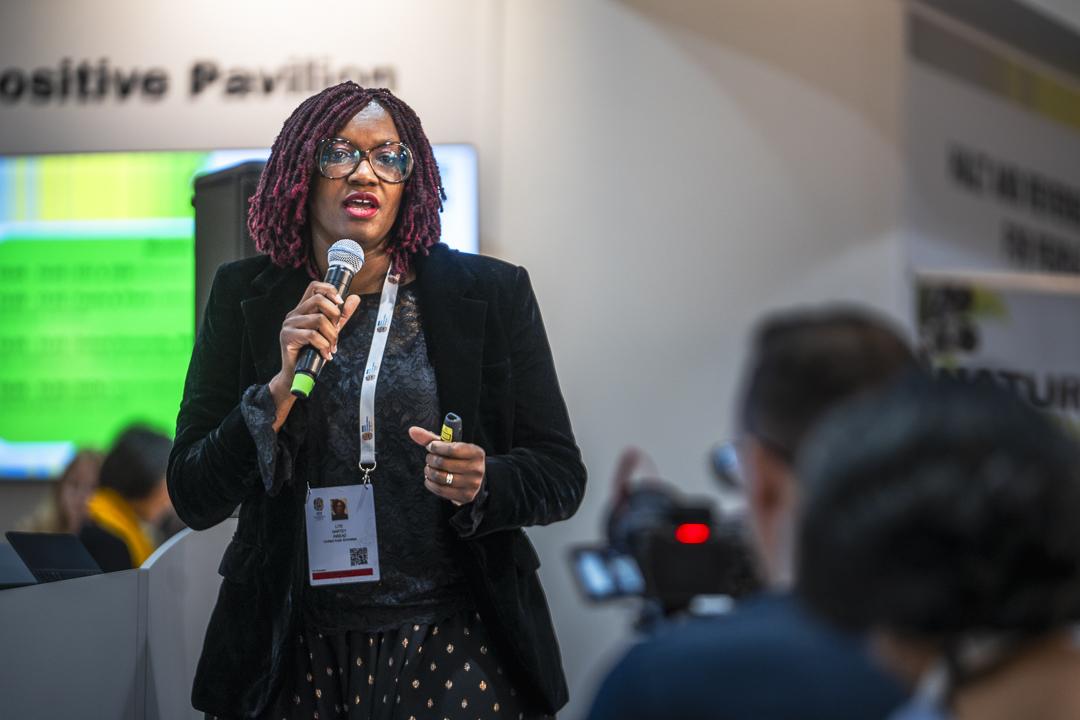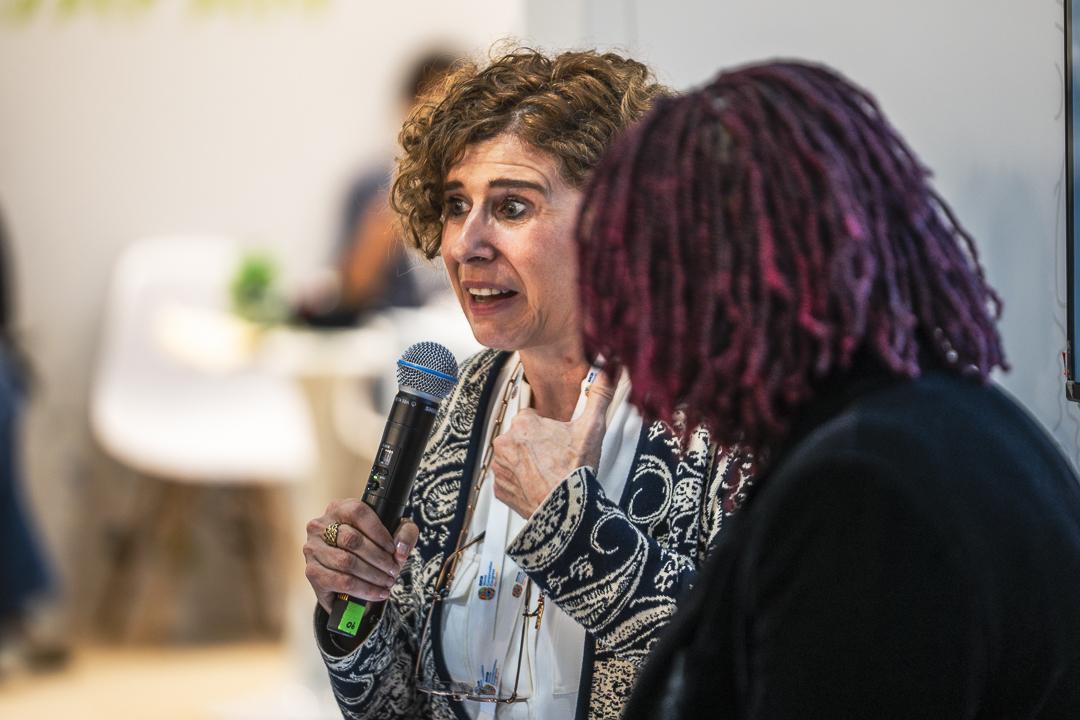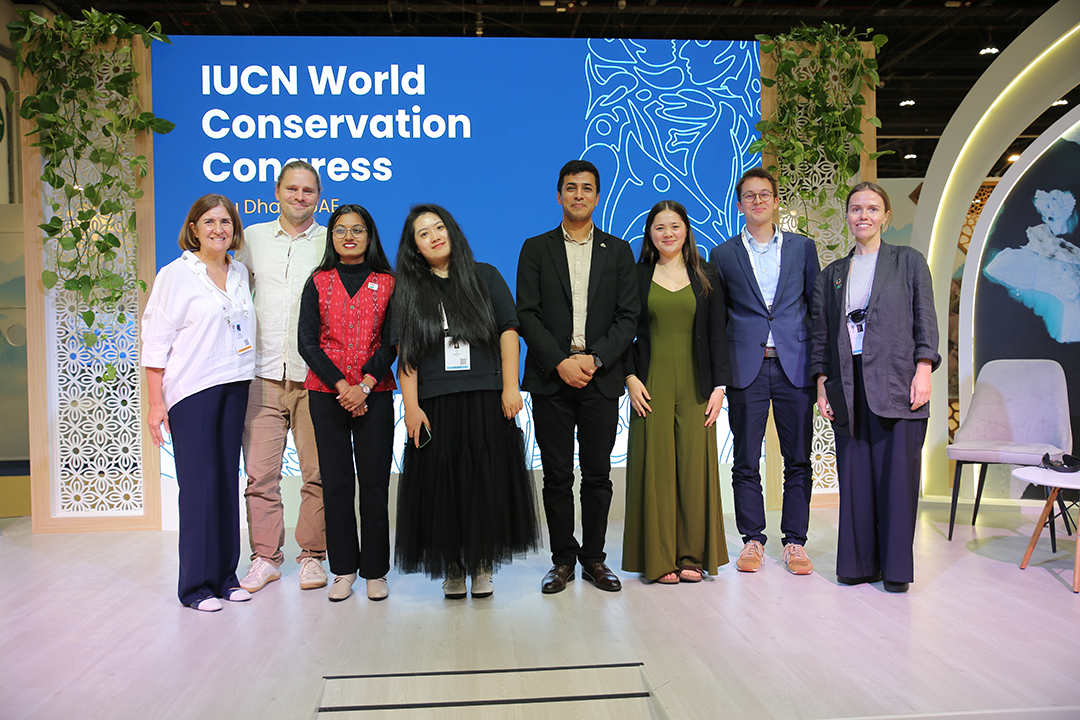
« We know the power of the wind that gives us purpose and direction »
(Solomon “Uncle Sol” Kaho’ohalahala)
As the world gathers at the International Union for Conservation of Nature (IUCN) World Conservation Congress, over 10,000 participants from more than 140 countries are uniting under a shared purpose: to reverse nature loss and sustain well-being of all forms of life on the planet. Among the highlights of the Congress - the launch of the Second Edition of the IUCN Global Standard for Nature-based Solutions™. Its objective is to provide guidance and a global framework for the design and scaling of Nature based Solution (NbS).
Founded in 1948 in the same location as INSEAD - Fontainebleau, IUCN has been at the forefront of global conservation efforts.
“Never before had we known what we know now. Never before could we go as high in the sky or so deep in the ocean. This knowledge is essential in understanding where our lives come from and what impact we have on other lives and creatures,” - said Sylvia Earle, world-known marine biologist and oceanographer in her conversation with HE Razan Al Mubarak, IUCN President. Al Mubarak stressed that, even with the amount of knowledge we have, both ancient wisdom and scientific evidence, it can be difficult to translate global commitments into local action, therefore we must ensure these global goals become effective local strategies engaging diverse stakeholders.
INSEAD’s Strategic Role: Embedding Nature and Local Lens in Business Strategy
INSEAD’s participation at the IUCN World Conservation Congress – Business Summit is both timely and strategic. Building on the school’s presence at key global sustainability platforms — including COP, the SDG Tent at Davos, the World Economic Forum, ChangeNOW, and the UN PRME — INSEAD continues to advance the conversation on how business can be a force for good. INSEAD was the inaugural partner of IUCN Business Summit, together with UN Global Compact, World Business Council for Sustainable Development, and others.
At IUCN, the focus is clear: integrating nature as a key stakeholder in business decision-making, evaluating risks based on scientific knowledge, to ensure equitable investment opportunities and stakeholder engagement.
Photo by IUCN Congress
Aligning Prosperity with Planetary Health
As a partner of the IUCN Business Summit, INSEAD hosted a session titled “Embracing Context: How Businesses Can Co-Create Nature-Positive Futures Through Inclusive Stakeholder Strategies”. The session addressed two fundamental questions: How can businesses translate global sustainability commitments into locally relevant nature-positive strategies? And how can businesses serve as enablers of alignment between global challenges and local strategies?
Moderated by Maria Fedorova (INSEAD Hoffmann Institute), the session opened with welcome remarks from Ian Gunderson, IUCN. He emphasized the importance of involving the private sector in discussions on nature preservation and environmental stewardship, noting that the goal of the IUCN Business Summit is precisely to facilitate this engagement.
Lite J. Nartey, PhD, Affiliate Professor of Strategy at INSEAD and Academic Director of INSEAD Africa Initiative, opened the session by defining the key challenges: bridging the global–local disconnect in sustainability requires adapting global frameworks to local contexts—a critical step toward achieving genuine stakeholder buy-in, ownership and sustainable models. The feasibility and legitimacy of any sustainability initiative depend on its context, which continuously evolves across geography, communities, and time. Businesses can act as enablers of this alignment through effective execution levers, recognizing that ecological resilience underpins business resilience, and that nature must be regarded as infrastructure rather than an externality. For conservation strategies to be effective, they must also integrate local livelihoods.
As illustrated by Lite J. Nartey in various case studies, successful ecosystem–business strategies emphasize long-term governance, context-appropriate operating models, shared metrics across biodiversity, water, employment, and partnerships that span local and international actors.
The presentation was followed by a fireside chat with Eva Ramos Pérez-Torreblanca, Director of Environmental Policy Analysis & Economics at the Environment Agency – Abu Dhabi (EAD). The Environment Agency – Abu Dhabi is the largest environmental regulator in the Middle East. To achieve its objectives, it engages stakeholders across four priority areas: Regulate, Monitor, Conserve and Educate.
Photo by (c) IUCN Congress
Eva Ramos Pérez-Torreblanca spoke about innovative policy instruments designed to influence behavior. For example, market-based approaches are among the new policy tools being gradually introduced to provide incentives for businesses to invest in nature-positive activities that restore ecosystems, enhance biodiversity, and create long-term economic value.
“We believe that nature and business are not opposing forces. Our role is not only to regulate, but to enable businesses to thrive while contributing to nature-positive outcomes,” said Eva.
“Since I joined EAD 16 years ago, I have witnessed how our engagement with this sector has evolved—becoming more complex, sophisticated, and effective.”
In their closing remarks, Professor Lite J. Nartey emphasized that context defines strategy, nature’s limits guide innovation, and blended finance models play a pivotal role in driving sustainability. These efforts must be underpinned by metrics that track both ecological and livelihood outcomes—essential for maintaining alignment between ecosystems and economies.
Eva Ramos concluded:
“Investing in nature is investing in resilience, competitiveness, quality of life, and long-term prosperity. Through regulations, public–private partnerships, voluntary agreements, and innovation incentives, we create pathways for business engagement in restoration, sustainable tourism, and the low-carbon economy—ensuring that growth is both competitive and sustainable.”
Young Changemakers at the IUCN World Conservation Congress.
We wrapped up our participation at the IUCN Congress by moderating the Changemakers Pitch Events. The Changemakers Initiative, launched by IUCN in 2022 in partnership with One Young World, has grown significantly — this year alone, the organizers received over 1,500 applications, and 15 finalists were selected to present their work at the Congress. Maria Fedorova (INSEAD Hoffmann Institute), the moderator of the session, highlighted that social entrepreneurship plays a crucial role in driving global progress and revenue, yet entrepreneurs continue to face daily challenges such as limited access to finance and difficulties in scaling their ventures.
Photo by IISD/ENB
At INSEAD, we support the social entrepreneurship ecosystem through partnerships with UN Academic Impact, the annual Impact Entrepreneurship Forum at ChangeNOW, and our flagship executive education programmes. In Abu Dhabi, we met with young entrepreneurs from all over the world – Morocco, Palestine, Germany, India, China – working across various sectors. The solutions they presented are highly innovative and address different topics: sustainable architecture, mindset and narrative shifts necessary to make an impact, energy efficiency, and pollution reduction.
Being a part of this event felt particularly meaningful, as this is something the school dedicates a lot of effort to, and it was good to see the diversity of companies led by young entrepreneurs working towards one goal – a just and regenerative future.
We thank our partners – IUCN – and hope that this partnership continues to thrive.
To read about how INSEAD Alumni walk the talk and present their work at global venues like IUCN, follow this space and stay in touch!
Subscribe to our Hoffmann Institute Quarterly Newsletter
Stay informed on our 60 second quarterly video updates, stories, video recordings of our webinars, and details of upcoming events and much more.



